America doesn't have a wealth tax. The Supreme Court might kill it anyway.
Justices are being asked to do something unusual: issue opinions about hypothetical legislation

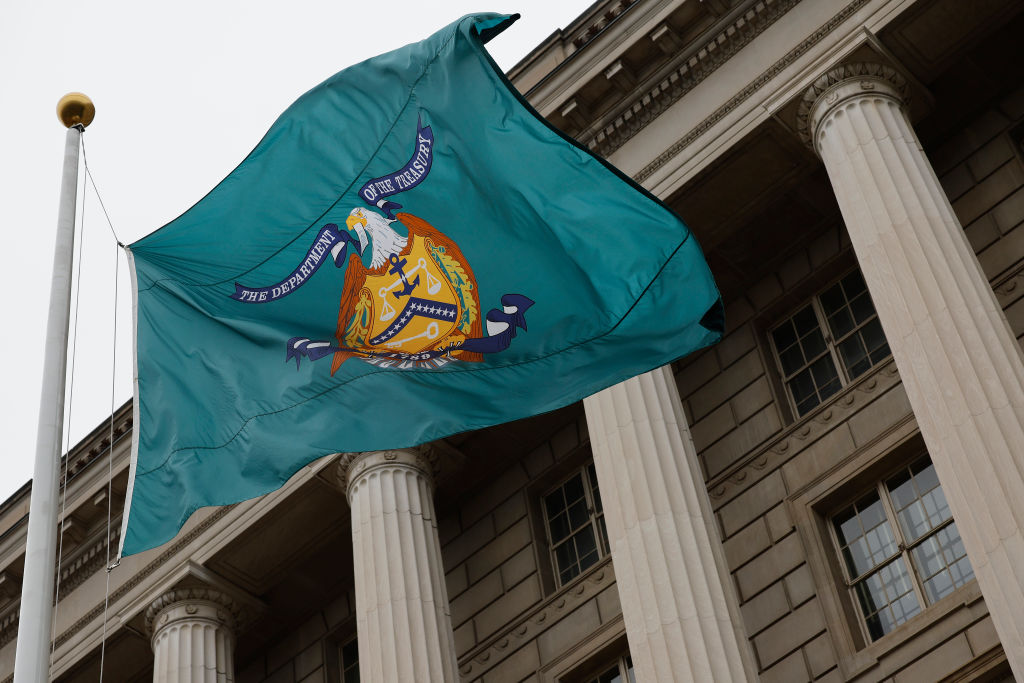
A free daily email with the biggest news stories of the day – and the best features from TheWeek.com
You are now subscribed
Your newsletter sign-up was successful
Remember the wealth tax? It was a centerpiece of Sen. Elizabeth Warren's 2020 presidential campaign, but the proposal — like her candidacy — didn't end up going anywhere. But just because America doesn't actually have a wealth tax doesn't mean the Supreme Court can't rule it out of bounds. It just might do so, The Associated Press reported, in a new case "backed by business and conservative political interests."
The case involves a Washington state couple who were taxed $15,000 for their share of profits from an India-based farm equipment company, The Washington Post explained. Donald Trump's 2017 tax law created a "one-time tax on certain offshore earnings that had previously been exempt from taxation." But the couple, Charles and Kathleen Moore, say they never received the profits. They sued the government, arguing the Constitution's 16th Amendment doesn't permit Congress to tax "unrealized" income. (Lower courts have disagreed, so far.)
So how does the nonexistent wealth tax come into play? A lot of wealth — stocks, bonds, land and other assets — produce income only if sold. A wealth tax would go ahead and put a levy on their value anyway. As The New Republic's Matt Ford pointed out, the Moores' lawyers wrote a 2021 op-ed saying their lawsuit "stands to slam shut the door on a federal wealth tax" because it would sharply limit Congressional taxing powers under the 16th Amendment, which empowered the federal government to authorize income taxes. Still, Ford noted, justices are being asked to do something unusual: "The Supreme Court does not have the constitutional power to issue advisory opinions about hypothetical legislation."
The Week
Escape your echo chamber. Get the facts behind the news, plus analysis from multiple perspectives.

Sign up for The Week's Free Newsletters
From our morning news briefing to a weekly Good News Newsletter, get the best of The Week delivered directly to your inbox.
From our morning news briefing to a weekly Good News Newsletter, get the best of The Week delivered directly to your inbox.
Protecting America's 'richest citizens'
The Supreme Court is showing itself to be "an instrument to protect the wealth of America's corporations and its richest citizens," columnist Michael Hiltzik argued in the Los Angeles Times. The Constitution restricts justices to rulings on cases that affect "real people, not conjectural issues that might occur in the future." If the court invalidates a wealth tax before it even exists, the justices would "actually be legislating, which the Constitution forbids."
"The proper venue to settle the debate is Congress, not the Supreme Court," the Tax Foundation's Daniel Bunn wrote for The Washington Examiner, a conservative publication. Wealth taxes are "economically harmful and unconstitutional." But the best bet is for justices to issue an extremely narrow ruling. "The court must walk a fine line between endorsing wealth taxes and increasing uncertainty in the tax code."
But the problem isn't just the wealth tax, Ian Milhiser noted at Vox. A narrow decision favoring the Moores "could blow a huge hole in the federal budget." The specific, existing provision of tax law that they're challenging was expected to produce $340 billion in revenues to the U.S. government over 10 years. If the justices knock that down, "they could do considerable damage to the government's ability to fund itself."
'The quadrillion-dollar question'
On the other hand, The Hill reported, a broad ruling from the Supreme Court that strikes down all taxes on unrealized income could end up "pushing heaps of taxable income out of the government's reach." It's not just the wealth tax and the one-time repatriation tax that might be affected, but "large swaths of the international tax regime." The repercussions are potentially massive. "It's the million-dollar question, just with a few more zeros: the quadrillion-dollar question," said Harvard University's Thomas Brennan.
A free daily email with the biggest news stories of the day – and the best features from TheWeek.com
Some observers see even wider ripple effects. Brakeyshia Samms at the Institute on Taxation and Policy noted that "the average net worth of white households is 4.1 and 5 times that of Black and Hispanic households, respectively." Killing a wealth tax could hurt efforts to reduce that gap. Similarly, Amy Royce argued at Ms., the loss of revenue from an adverse court ruling would make it "even harder to persuade policymakers to invest in universal childcare, affordable housing, paid leave and more."
Even a narrow ruling would open the door to "more cases questioning the constitutionality of long-settled parts" of the tax code, Natasha Sarin wrote in The Washington Post. That would put the "stability of our tax system would be in doubt." The Supreme Court hears the case on December 5.
Joel Mathis is a writer with 30 years of newspaper and online journalism experience. His work also regularly appears in National Geographic and The Kansas City Star. His awards include best online commentary at the Online News Association and (twice) at the City and Regional Magazine Association.
-
 Local elections 2026: where are they and who is expected to win?
Local elections 2026: where are they and who is expected to win?The Explainer Labour is braced for heavy losses and U-turn on postponing some council elections hasn’t helped the party’s prospects
-
 6 of the world’s most accessible destinations
6 of the world’s most accessible destinationsThe Week Recommends Experience all of Berlin, Singapore and Sydney
-
 How the FCC’s ‘equal time’ rule works
How the FCC’s ‘equal time’ rule worksIn the Spotlight The law is at the heart of the Colbert-CBS conflict
-
 Supreme Court upholds California gerrymander
Supreme Court upholds California gerrymanderSpeed Read The emergency docket order had no dissents from the court
-
 How robust is the rule of law in the US?
How robust is the rule of law in the US?TODAY’S BIG QUESTION John Roberts says the Constitution is ‘unshaken,’ but tensions loom at the Supreme Court
-
 The ‘Kavanaugh stop’
The ‘Kavanaugh stop’Feature Activists say a Supreme Court ruling has given federal agents a green light to racially profile Latinos
-
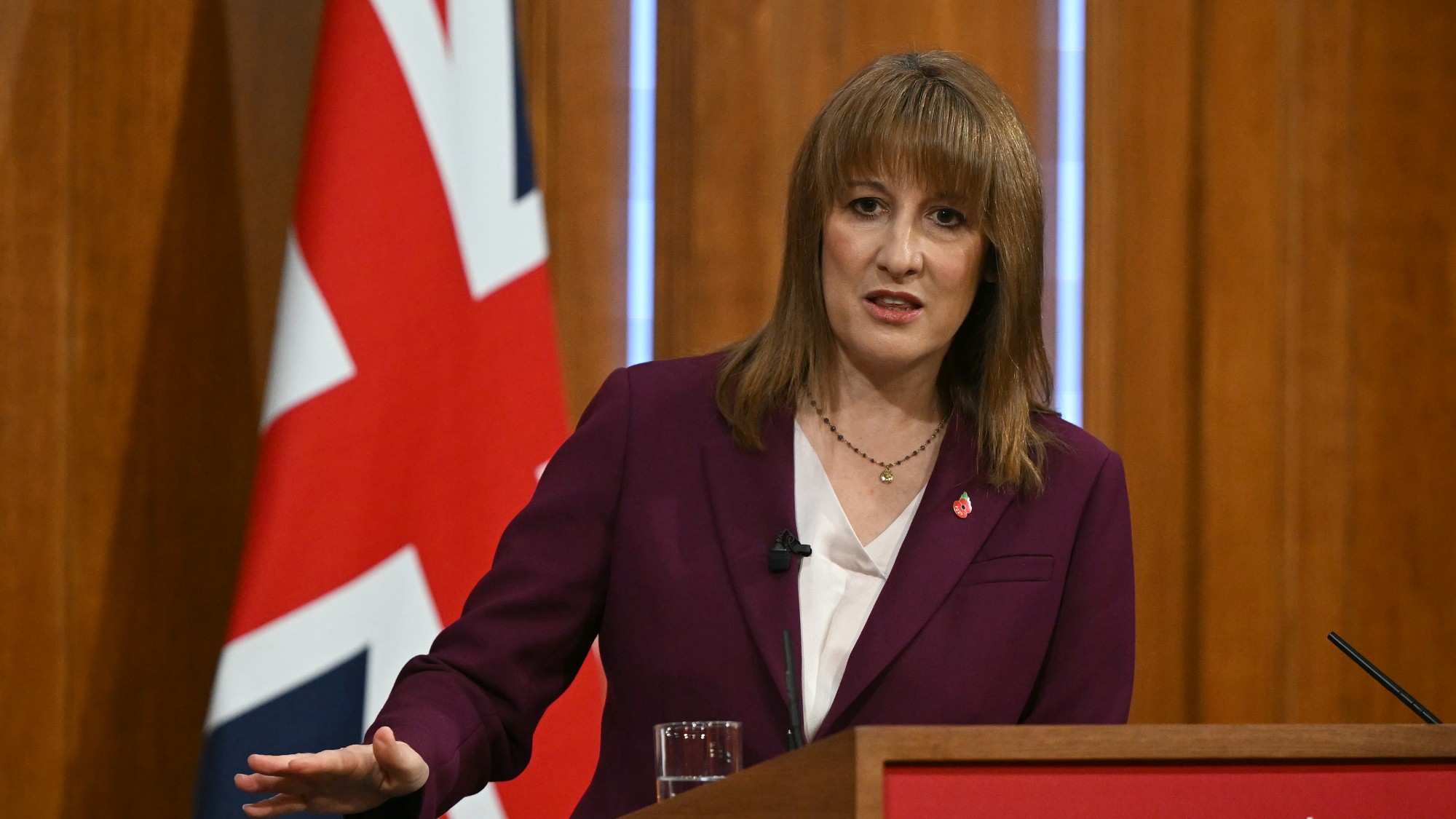 Will Rachel Reeves’ tax U-turn be disastrous?
Will Rachel Reeves’ tax U-turn be disastrous?Today’s Big Question The chancellor scraps income tax rises for a ‘smorgasbord’ of smaller revenue-raising options
-
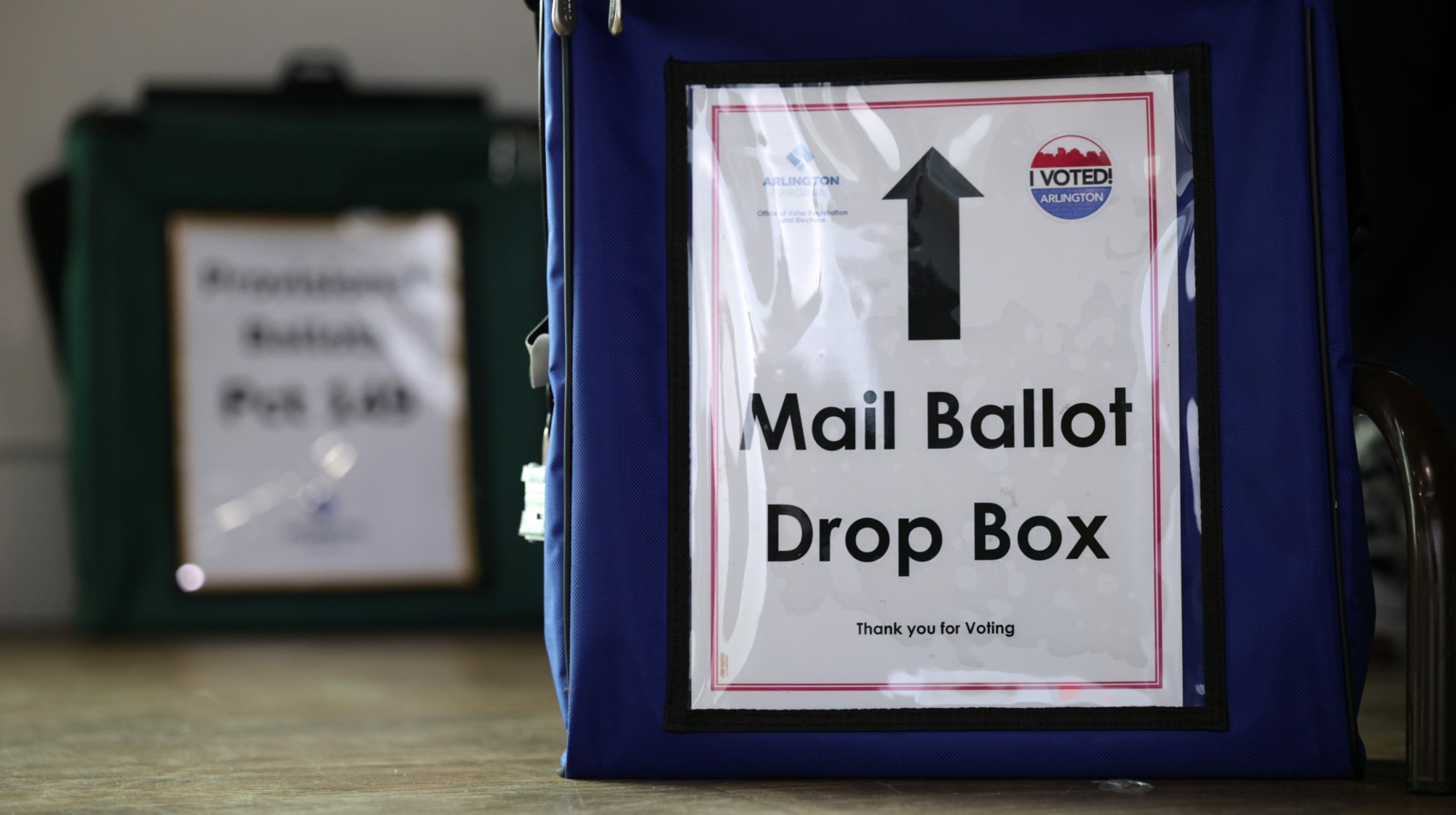 Supreme Court to decide on mail-in ballot limits
Supreme Court to decide on mail-in ballot limitsSpeed Read The court will determine whether states can count mail-in ballots received after Election Day
-
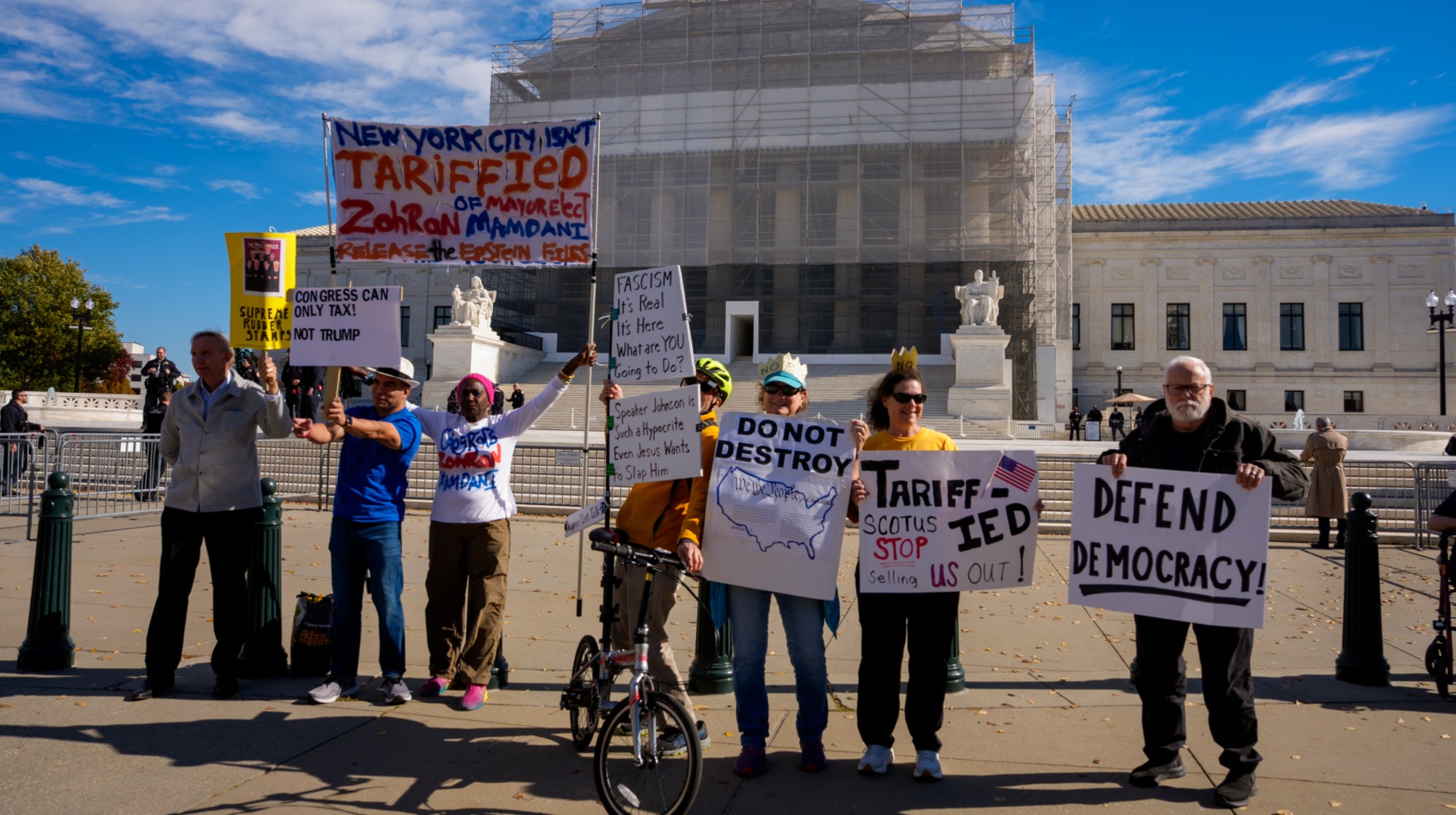 Trump tariffs face stiff scrutiny at Supreme Court
Trump tariffs face stiff scrutiny at Supreme CourtSpeed Read Even some of the Court’s conservative justices appeared skeptical
-
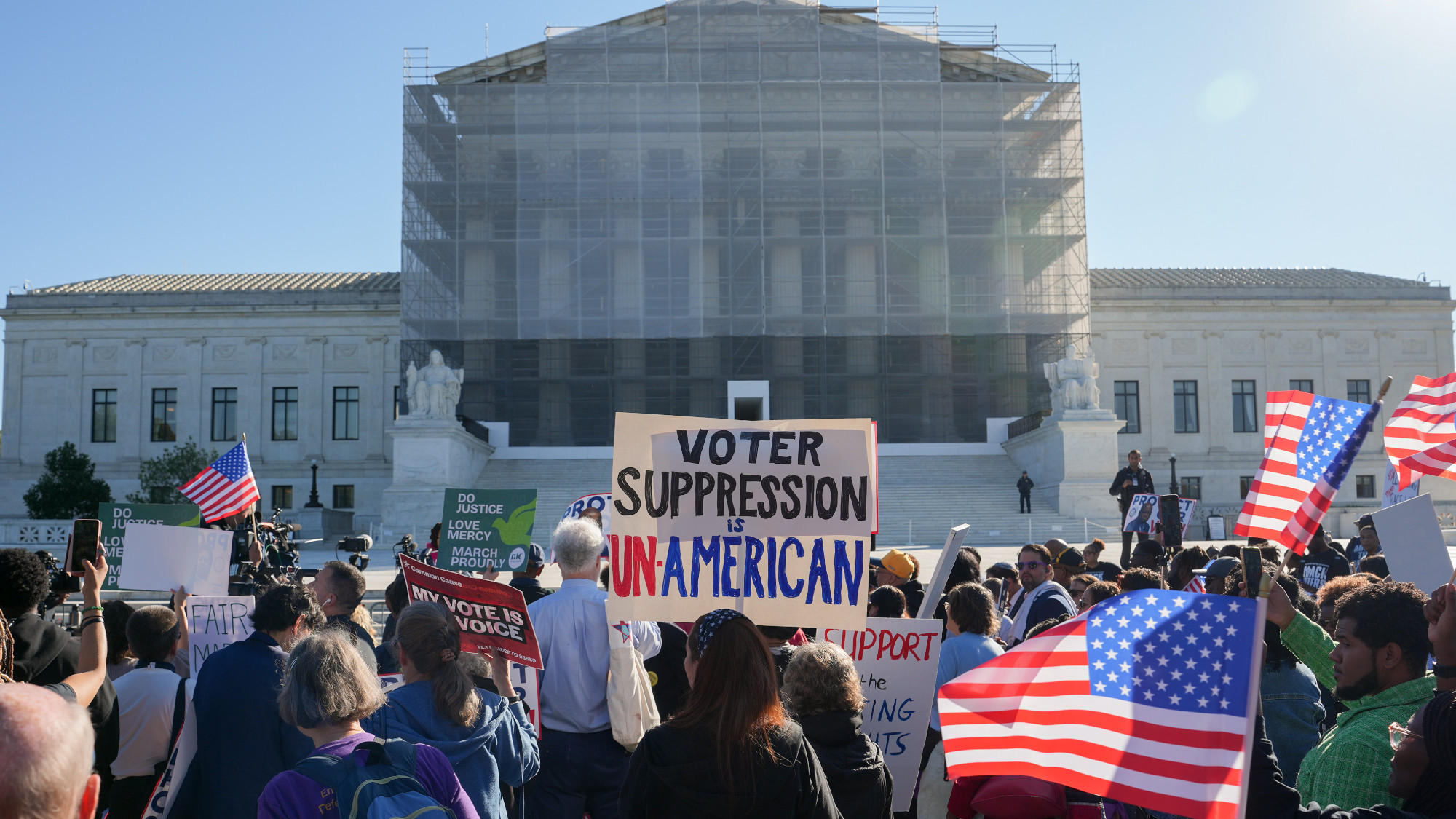 Voting Rights Act: SCOTUS’s pivotal decision
Voting Rights Act: SCOTUS’s pivotal decisionFeature A Supreme Court ruling against the Voting Rights Act could allow Republicans to redraw districts and solidify control of the House
-
 ‘The illusion of wealth can encourage people to take on more debt’
‘The illusion of wealth can encourage people to take on more debt’instant opinion Opinion, comment and editorials of the day
